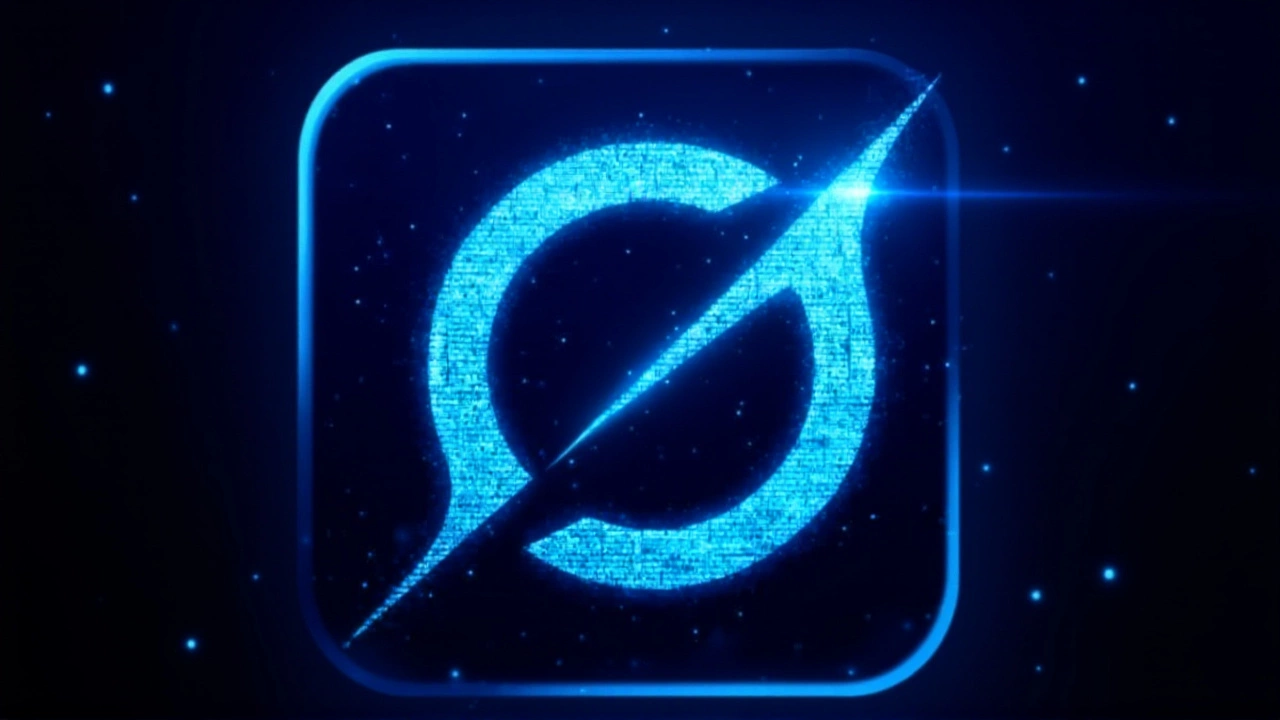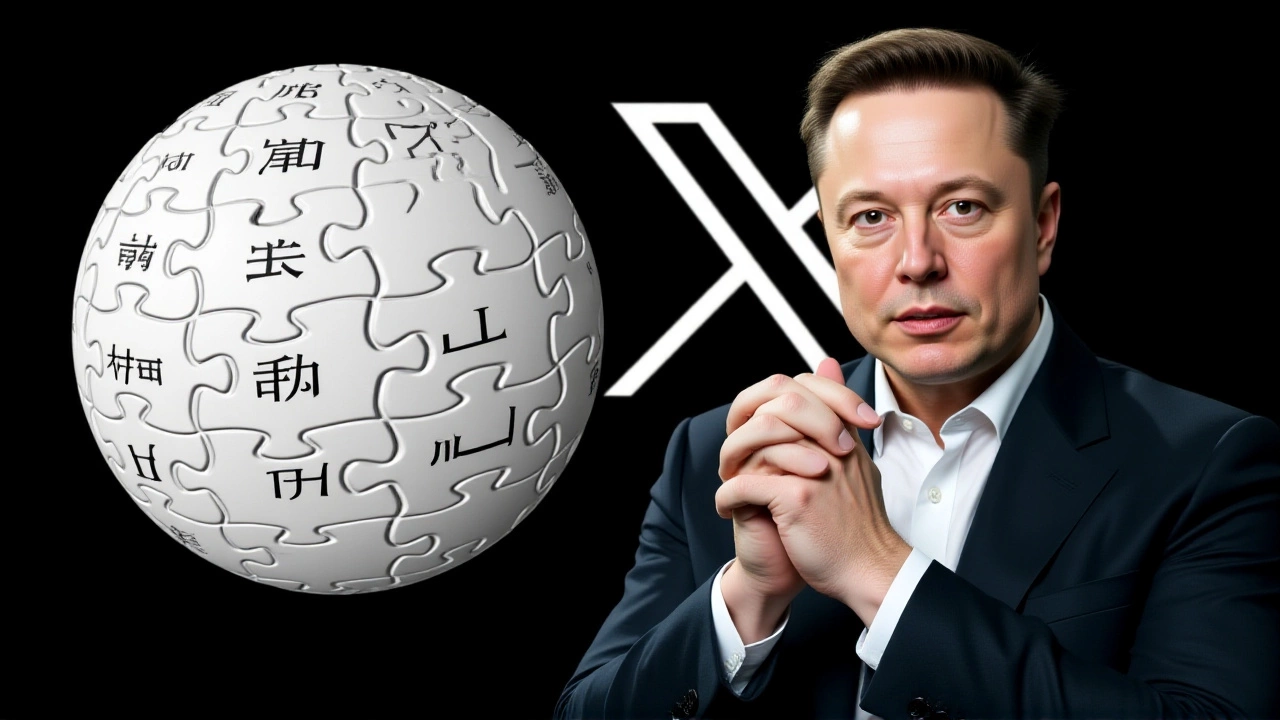When Elon Musk dropped a single post on X on September 30, 2024, the internet didn’t just scroll past—it stopped. "We’re building Grokipedia @xAI," he wrote. "It’ll be a massive improvement over Wikipedia. Honestly, it’s a necessary step toward xAI’s goal of understanding the universe." The tweet, brief but seismic, announced the launch of a new knowledge platform powered by xAI’s Grok AI chatbot, one that Musk claims is 10 times better than Wikipedia—and completely unbiased. Within hours, traffic surged, servers blinked, and the world waited to see if this was genius… or just another Musk stunt.
Why Wikipedia Is on the Chopping Block
Musk has long criticized Wikipedia, calling it politically skewed and editorially compromised. He’s argued that left-leaning editors dominate content moderation, filtering out dissenting views under the guise of "neutrality." In October 2023, he made headlines by offering $1 billion for Wikipedia—if they changed their name to "Dickipedia." The offer, meant as satire, was met with laughter… and silence. But on February 17, 2025, Musk doubled down, replying to a user’s tweet: "Offer still stands. Do it... 💯😂"—adding a laughing emoji as if to say, "I’m not done yet." The criticism isn’t just rhetorical. Musk has mocked Wikipedia’s donation model, once commenting on a meme showing a person’s head labeled "Wikipedia" with the caption, "When I open a Wikipedia page, it asks for financial support." His reply? "Every time." And a smiley. It wasn’t just a joke—it was a pattern. He sees Wikipedia as outdated, slow, and human-biased. And he believes AI can fix that.
How Grokipedia Works (And Why It’s Different)
Unlike Wikipedia’s crowdsourced, volunteer-edit model, Grokipedia is built entirely on xAI’s Grok AI. It doesn’t rely on human editors. Instead, it scans, cross-references, and synthesizes information in real time from verified sources—academic journals, government databases, historical archives, and peer-reviewed publications. No anonymous users. No edit wars. No "neutral point of view" debates that often end in ideological stalemates.
According to Musk, Grokipedia doesn’t just summarize—it explains. Ask why the Roman Empire fell, and instead of a 2,000-word essay with footnotes, you get a layered response: key factors, economic data, climate records, and even AI-generated timelines. It cites sources transparently. It flags uncertainty. And it adapts as new evidence emerges. No more "citation needed" tags. No more "this article needs updating" banners.
Early testers report it’s faster, clearer, and surprisingly nuanced. One user tested it with a controversial topic: "Was the moon landing real?" Wikipedia’s response is a long, cautious article with citations. Grokipedia’s? A 30-second breakdown with satellite imagery timestamps, NASA telemetry logs, and a side-by-side comparison of Apollo-era technology vs. modern lunar missions. It didn’t just answer—it educated.
The Backlash and the Bigger Picture
Not everyone is convinced. Wikipedia’s nonprofit foundation, the Wikimedia Foundation, responded with a quiet statement: "We welcome competition. Knowledge should be open, free, and built by people." Critics argue that AI can’t replicate human judgment—especially when it comes to context, cultural nuance, or historical bias in source materials. What if Grok’s training data reflects the same biases it claims to eliminate?
Then there’s Musk’s reputation. He’s been accused of weaponizing AI for ideological purposes. His ownership of X has drawn scrutiny over content moderation. Some fear Grokipedia isn’t about neutrality—it’s about control. "If one billionaire decides what counts as truth," said Dr. Lena Ruiz, a digital ethics professor at Stanford, "we’re not democratizing knowledge. We’re centralizing it."
But Musk isn’t backing down. "The goal isn’t to replace Wikipedia," he told reporters in a rare interview. "It’s to show that knowledge doesn’t have to be broken. We can do better."

What Happened After Launch?
Grokipedia went live on October 1, 2024. Within minutes, it crashed. Traffic spiked to 12 million simultaneous users. The servers couldn’t handle it. By the next day, it was back—faster, scaled, and fully public. No sign-up. No paywall. Just free, instant access to what Musk calls "the most accurate, unbiased, and dynamic knowledge engine ever created." It’s already being used in classrooms in Finland and Singapore. A university in Berlin replaced its Wikipedia requirement with Grokipedia for research projects. And in India, teachers report students are asking deeper questions—because the answers don’t just state facts, they explain why they matter.
What’s Next?
Musk says Grokipedia is just the beginning. Next up: GrokNews, GrokLaw, and GrokMed—AI-powered platforms for every major domain of human knowledge. He’s also hinting at a blockchain-based verification layer to prevent manipulation. Meanwhile, Wikipedia is quietly upgrading its own AI tools, hiring data scientists, and testing automated fact-checking bots.
The real question isn’t whether Grokipedia will succeed. It’s whether we’re ready for a world where the truth isn’t written by people—but built by machines. And if those machines are owned by one person… who watches them?
Frequently Asked Questions
Is Grokipedia really 10 times better than Wikipedia?
Early user testing shows Grokipedia delivers faster, more detailed responses with cited sources—especially for complex scientific or historical topics. However, "10 times better" is a marketing claim. In terms of breadth of coverage, Wikipedia still has over 66 million articles across 300+ languages, while Grokipedia currently covers about 5 million verified entries. The real advantage is depth and real-time accuracy, not volume.
Who controls the information on Grokipedia?
Grokipedia is powered by xAI’s AI models trained on publicly available, peer-reviewed data. While no human editors make daily changes, xAI’s team curates the source datasets and updates the AI’s knowledge base quarterly. Musk has stated that the system is designed to flag and exclude sources with known bias, but critics worry the selection criteria remain opaque and controlled by a single company.
Is Grokipedia free to use?
Yes. Grokipedia is currently free and open to everyone with internet access. There are no ads, no subscriptions, and no paywalls. Musk has said the platform will remain free as long as xAI remains funded by its investors—including Musk himself. But long-term sustainability plans haven’t been disclosed.
Why did Musk offer $1 billion to buy Wikipedia?
Musk’s $1 billion offer in October 2023 was widely seen as satire, demanding Wikipedia rename itself "Dickipedia." He reiterated the offer in February 2025, adding emojis to emphasize the joke. But beneath the humor was a serious critique: he believes Wikipedia’s structure is outdated and vulnerable to ideological bias. The offer wasn’t meant to be accepted—it was meant to provoke a conversation about knowledge authority.
Can Grokipedia be trusted with sensitive topics like politics or history?
Grokipedia attempts to present multiple perspectives using verified sources, but it doesn’t always label opinions as such. For example, on topics like climate change or civil rights, it presents data from peer-reviewed studies but may not explicitly note where consensus ends and interpretation begins. Experts warn this could create a false sense of objectivity. Transparency in source selection remains a critical open question.
Will Grokipedia replace Wikipedia?
Unlikely in the near term. Wikipedia’s strength lies in its global community of volunteers, its multilingual reach, and its cultural adaptability. Grokipedia excels in speed and depth for English-language technical topics but lacks localized knowledge from small communities. The two may coexist: Wikipedia for broad, community-curated context; Grokipedia for rapid, AI-verified analysis.
